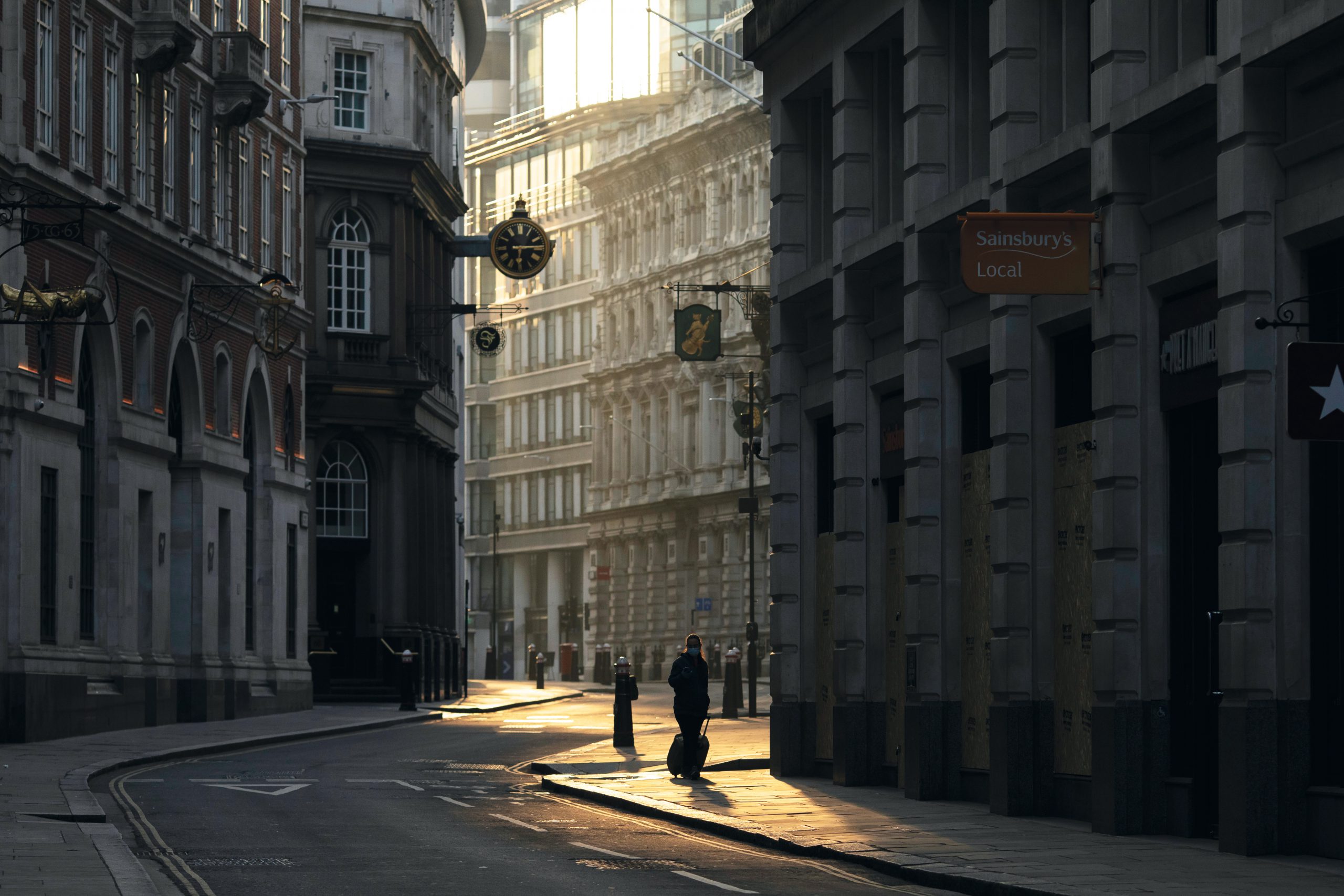
I caught Covid-19 last year on Monday 16 March. By coincidence, that was the very day when the British government abandoned its idle flirtation with herd immunity, and set off towards lockdown. Too late for me. A subsequent 17 days in bed took me as low as I’ve ever been, but my recovery period was serene. I lay out in the garden reading, while drifting in and out of sleep and relishing a particularly beautiful spring. I did nothing. My body healed itself.
Appropriately, by summer, my play about Covid, Beat the Devil, had become the first indoor production in London. I kept hearing two principal reactions, aside from the universal admiration for Ralph Fiennes’ performance as the author. Everyone was impressed by the Bridge Theatre’s impeccable arrangements. There was something moving about a playhouse which so clearly prioritised keeping its visitors safe. But beyond that, many people remarked that after reading thousands of words and seeing so many broadcasts, it was refreshing for once to be told what having the disease was actually like. Some didn’t know that it could make you seriously delusional.
When, last November, it was decided to make a film, I got in touch with Beverley Hunt, professor of thrombosis at King’s College, London, and a consultant at St Thomas’ Hospital. She had fired my imagination originally when she gave a radio interview in which she used a memorable phrase about “seeing the stickiest blood of my career”. Before filming, she offered me a one-hour masterclass in what it had been like to treat Covid-19. She was keen to emphasise how much doctors had learned in so short a time, and how much more expert hospitals had become. In the spring, she said, I had been right to refuse to go into hospital. I was probably as safe at home, if not safer. But this was no longer true.
In 95 per cent of Covid patients, the disease doesn’t go to the lungs. It’s only from the lungs that the really dangerous things follow – pneumonia, kidney disease and thrombosis. Keep it out of your lungs and you may go through hell, but your hell will not be fatal. Professor Hunt also wanted to point out that, by then, 60 million people had already contracted the virus, and yet only a handful, probably with freak immune systems, claimed to have had it twice.
Now it was my turn to feel ignorant. I realised I had watched so many reports about stresses on the NHS that I was unaware of the medical discoveries which underlay the rapid progress in treatment of the disease. I had long since become allergic to television reporters claiming to have exclusives inside emergency wards. I’d watched enough ventilator porn. The effect of the dispatches was to spread hysteria without offering enlightenment. The good news about the advances in understanding of the medicine were under-reported and under-explained.
After one lockdown, it had seemed as if what we had all gone through was an interruption. But, almost a year on, it feels more like a transformation. We know that the poor have been disproportionately affected. The 10 per cent at the economic bottom are almost three times as likely to die as the 10 per cent at the top. Any politician who is not dedicated to understanding exactly why this is so, and to doing something about it, should find another job.
In lockdown, many familiar aspects of life are on notice to quit. My unscientific guess is that music, theatre and overseas travel will return strongly. I saw enough good feeling at the Bridge in August to know how badly people want live performance. And my own frustration at confinement tells me we miss being in countries warmly different from our own. I would be far less confident about the future of printed newspapers, of the cinema, and of the credibility of Conservative governments. The damage to these appears long-term.
This has been a great time for Gaia theory – the idea, brutally summarised, that nature is self-regulating. If human beings set about destroying their environment, the environment will fight back, and win. A Gaian friend observed to me that the virus doesn’t want you to die, because the virus will then die with you, and all viruses want to survive.
I regard myself as extremely lucky to have encountered this pandemic so late in life. I hate to think what it’s like to be young, to have a talent and a purpose, and not to be able to put them to use. We mourn friends, but we should also mourn waste. We all know about long Covid, but the longer Covid, and by far the more insidious, is waste.
This article is from our “Notes on a crisis” series
This article appears in the 27 Jan 2021 issue of the New Statesman, The Lost






